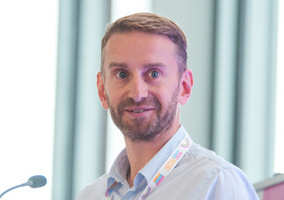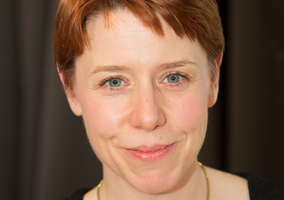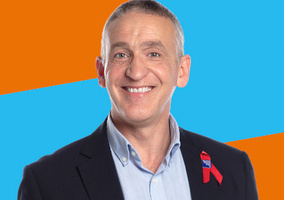After more than five years leading StepChange, Phil Andrew is stepping down from the debt charity and helping to recruit his replacement.
Since becoming chief executive in 2017, Andrew has led the StepChange’s “technological transformation”, moved to a smaller head office in Leeds and significantly reduced the charity’s staffing.
Meanwhile, need for the charities’ services fluctuated firstly with the Covid-19 pandemic, which briefly lowered demand, and now the cost-of-living crisis, which Andrew warns is pulling new groups of people into debt for the first time.
Andrew says he has “loved every minute” of leading StepChange, despite it being “all hands to the pumps” for the charity since the pandemic began.
He has decided to “get out of the way and let somebody else have a go”, saying that “sometimes a job needs a new person” and “five years is enough” in a role like his.
Andrew will begin a new role at another organisation, which he is unable to talk about, and was inspired to make a move through his recent studies at Harvard Business School, which includes two months on site in the US.
“My coach said: ‘You might be pleased with the amount of social good you're doing. But if somebody else can do your job, let them do that social good. And you go and find some way to do it at a larger scale.’ And that's exactly what I’m going to do.”
From glaciers to charities
After growing up in Stockton-on-Tees, Andrew studied glaciology at the University of London, before joining IBM’s graduate finance programme and training as an accountant.
Following six years working for the US technology giant, Andrew moved to British American Tobacco, a company he says is “brilliantly run which just sells the wrong product”. Andrew spent eight years at the tobacco firm, including periods working in Malaysia, Hong Kong, Singapore and Moscow.
He says trustees at StepChange “quite rightly” gave him “a really hard time” about the role at the cigarette company. But he says: “I don't regret my time there in any way, shape or form. However, I have found that I have had to explain myself in a repenting manner.”
Andrew says he was driven in the first part of his career to make sure he had “enough money to make [my] family comfortable and make sure that my wider family all had houses”.
He then moved to French company Sodexo, working in the firm’s offender rehabilitation division designing, building and operating prisons on behalf of the Ministry of Justice. It was there that he changed his priorities to work in roles with a social purpose.
“I then got asked to be finance director for the overall Sodexo UK and Ireland group, which included running Royal Ascot, hospitality for the Olympics, cleaning, dog food, factories, all sorts of stuff. And it left me a bit cold, honestly,” said Andrew.
Andrew then moved to Working Links, then a welfare-to-work charity, for four years, which confirmed his preference to work for a socially-minded employer.
“Ever since I've been drawn to social purpose organisations and the next place I'm going to has a very, very strong social purpose as well,” he said.
Andrew is proud of his time at Working Links – “first female employment programme in Saudi Arabia, first disabled employment programme in Kuwait” – but the organisation was then bought by Aurelius investment group in 2016, with whom he “didn't quite connect”, so he handed in his one-year notice.
Technology transformation at StepChange
Andrew was headhunted by StepChange, which he describes “almost like a dream” as the charity CEO role ticked numerous boxes for him.
“My parents were getting old, my wife's parents were getting older, and were all up in the north east. So, I was thinking ‘Well, what we should probably do is find a job in the north somewhere’.
“And then, I'm a finance guy with treasury qualifications, looking for social purpose in a complex environment that requires a major tech transformation.”
The charity’s shift to more digital ways of working was accelerated by the pandemic, but Andrew was focused on a technology strategy at the organisation from day one in the role.
“We have seven million people in the UK who need debt advice. Whether they recognise it or not, is a different matter. And so, you can't be the UK's largest debt advice charity, just hoping you can satisfy that demand by having people taking phone calls.”
The pandemic did speed up the transformation, with the charity setting its more than 1,000 staff up to work remotely over six weeks. He said this was challenging for StepChange as its advisers “highly sensitive conversations” with service users so require “really good security”.
It was also about catering to people’s changing preferences about how they wish to be contacted. “Nobody under 25 wants to speak to anybody on the phone – everybody has mass social anxiety about it.”
Andrew says the charity now operates an “ultra-low friction client experience” in which people with debt issues can speak to the charity’s advisers through a web chat then speak over the phone “if you get into difficulty”.
It has introduced a “client activation portal” to process services users’ personal documents. Andrew says the new digital system can register a client with the charity “in 40 minutes” whereby its previous process, which involved physically sending files, took about a month.
This technological transformation took three years to implement and cost the charity about £12m. But Andrew says the ongoing cost of providing online debt advice compared to doing it all over the phone is “cheap as chips”.
Cut to government funding
Andrew has led a reduction the charity’s number of staff, from around 1,600 when he joined to what will be about 1,000 people at the end of 2023.
“We've reduced our headcount numbers quite a lot and the approach has been to have fewer colleagues, but pay them better.”
Andrew says the charity has introduced role development boundaries so debt advisers can gain promotions and higher salaries by upskilling “and that's worked well”.
The reduction in employees has been driven by the technological shift. But also, an around £12m annually the charity has received in central government funding in recent years will end next month. In terms of net costs, Andrew says the charity will be down by around £8m a year.
Asked whether losing the funding would change the charity’s approach to criticising the government, Andrew says: “Not at all.” He adds that the charity spends around £4m a year on its campaigning and policy work.
“We've always criticised the government when it has been necessary. And we've been very, very clear, that that's what we will do. Because if it's necessary, and to be fair to government, it's never as far as I've ever seen, impacted their funding decisions.”
But Andrew adds: “We’re not a shouty charity. We’ll work with government and other organisations to influence them. And we only get noisy about it if, whichever organisation it is, doesn’t listen.”
For example, the charity works “very closely” with the Treasury and Department for Work and Pensions but it lobbied the government to stop reducing Universal Credit payments by a quarter to people who were in debt to it.
“So, they take 25% of that universal credit from you. Universal Credit by definition is the minimum they think you need to survive. So why don't you take 25% of it away from somebody if they’re in debt to government? And when they don't listen to that, we get noisy.”
The charity gets most of its money from creditors including banks to which its service users owe money.
“When a client contacts us and says: ‘I've got this debt with HSBC,’ as an example, HSBC may well already have assumed they’re never going to get that money back. So, when we contact them and say: ‘This person would like to pay the whole of this debt back, but over five years, as long as you stop interest and charges,’ they are absolutely delighted.”
As part of the agreement, the creditor will also pay StepChange 13% of the face value of the money it gets back.
But the charity is only paid for the support it offers to the minority of its service users, with that money used to subsidise the work it does with the majority of its beneficiaries.
Flexible working
StepChange now only requires its staff to be in the office around two days a month, making it a more flexible organisation than many others in the charity or debt advice sectors.
Andrew says the permanent shift to remote working happened because it was what staff wanted and despite his being unsure about it – “I didn't think it was enough but it’s actually fine.”
StepChange has also halved its annual property costs after reducing the amount of office space it leases.
But Andrew says offering flexible working arrangements has gone from being a perk to an expectation.
“It’s not an incentive, it doesn't give you a competitive advantage anymore. What happens is, if you demand people in the office too much, it’s a massive turn off. So, it’s going to turn into an expected right and you just have to do it.”
Imposter firms
One “big problem” for StepChange is “brazen” imposter firms pretending to be the charity in online adverts and taking money from people in need of debt support.
Scam organisations with similar names like “Step To Change” will pay for adverts to appear at the top of a Google search, and then people will click on them thinking it is StepChange.
The bogus firm will then ask for the person’s bank details or offer to put onto a debt programme such as an individual voluntary arrangement, with large upfront costs, “and it’s just not suitable as a solution for that individual”.
Andrew says a person who has been scammed will then complain to the charity about being charged for a service by an imposter firm.
“We've reported so many organisations to the FCA and so many are being shut down. But it’s like Whack a Mole – as soon as one goes down, another one pops up.”
Related Articles












